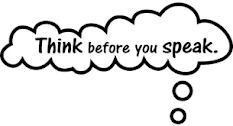Now that we have eased ourselves into 2024, it’s time to take a brief look at the year we’ve left behind.
Avot Today comes in two formats: a Facebook Group and the Avot Today blog. All the posts on Pirkei Avot that appear on the blog are posted on the Facebook Group too, so you can keep up with them whichever way you want. The differences between them are that
· Readers’ responses, comments and discussions are found on the Facebook Group;
· The blog is a useful research resource. Its content can be searched by subject (there’s a lengthy index of topics in the right-hand column of the page) and by word (the word search box is in the top left-hand corner of the title bar).
The
Facebook Group now has 302 members, and we are adding them at the
rate of maybe five or six a month. The blog doesn’t have members as such, but our
counter shows us that its posts have been visited more than 41,000 times since
we started posting in mid-2000.
There’s a
lot of material on Avot Today now. In 2023 we posted a total of 139
separate items: that’s more than ten per month. There are now well over
500 Avot-related items, most of which directly address the relevance of Avot in
contemporary society and culture.
Here are the
most popular Facebook Group posts on Avot Today last year:
1. Was Shakespeare Jewish and is there
Proof in Pirkei Avot? We look at current suggestions that Pirkei Avot provides clues as to
the Bard’s religious affiliation—and dismiss them (290 views).
2. Pirkei
Avot and the Museum of Cultural Curiosities. Picking up on a quote from Rabbi Lord Jonathan
Sacks’ controversial The Dignity of Difference, we discuss contemporary reluctance
to study Jewish ethics. Has Pirkei Avot gone out of fashion? (219 views).
3. For
Torah’s Sake. We
are supposed to learn Torah lishmah, for its own sake. For those with
the love of Torah and an aptitude for study, this is a pleasure rather than a
challenge—but what, if any, is the entry-level standard by which one can
measure Torah for Torah’s sake? (184 views).
4. Beyond Understanding. Hilel teaches us not to say things that can’t
be understood if the intention is that they should be. Where does that leave us
with the recitation of Kinot on Tisha b’Av, some of which are nearly
unintelligible? (184 views).
5. Rambam on Humility: Has this Message
Timed Out? Everyone
agrees with the position Avot takes on the importance of humility—but do modern
notions of humility match the bizarre example Rambam gives? (178 visits).
6. The
Case of the Pious Prankster. What is the message of Avot for well-meaning and genuinely committed
members of the Jewish community who enjoy playing the occasional practical joke
on their friends? (163 views).
AND WHAT
ABOUT 2024?
Of the 139
items posted to Avot Today last year, only four came from authors other than me.
I’m sad about this because I believe that other voices and other opinions on
Jewish moral and ethical issues should be heard in addition to my own. If you
would like to write short pieces on Pirkei Avot for Avot Today, or if you are
just waiting for a little encouragement or persuasion before you do so, please
get in touch with me!
In similar vein, while readers’ comments are greatly appreciated, we would love to hear from a wider audience. We are very much dependent on a relatively small number of readers who take the time to share their thoughts and occasionally to correct or debunk my own. If you read something that makes you want to respond, don’t wait till that urge subsides. Act on it and let us know what’s on your mind.
Another way
readers can help is by sharing more Avot Today posts. This helps to spread the
word and to emphasise the importance of The Ethics of the Fathers in Jewish
life and thought today.
Avot Today is not just for my amusement (even though I do enjoy running it). It’s for everyone who cares about how Jewish people behave in the real world today, a world in which Jewish values and ideals are increasingly under threat. If you truly care about Jewish values, supporting Avot Today is one of many ways in which you can show it. Thanks!













